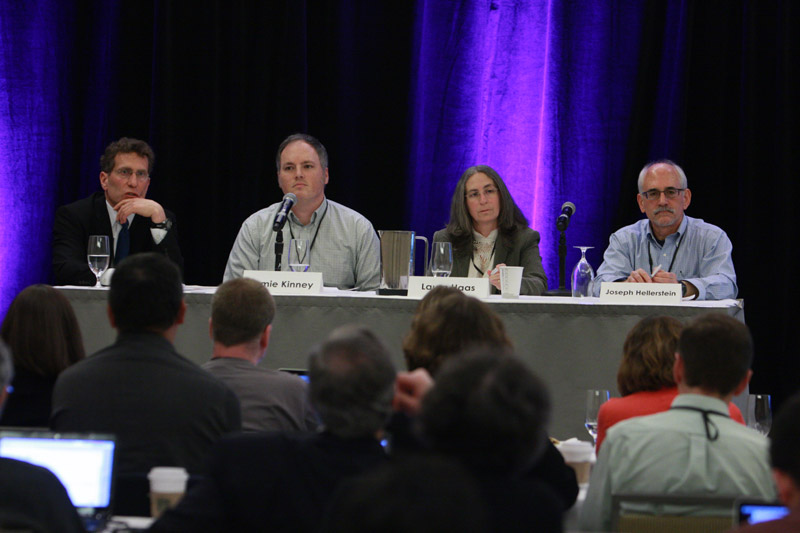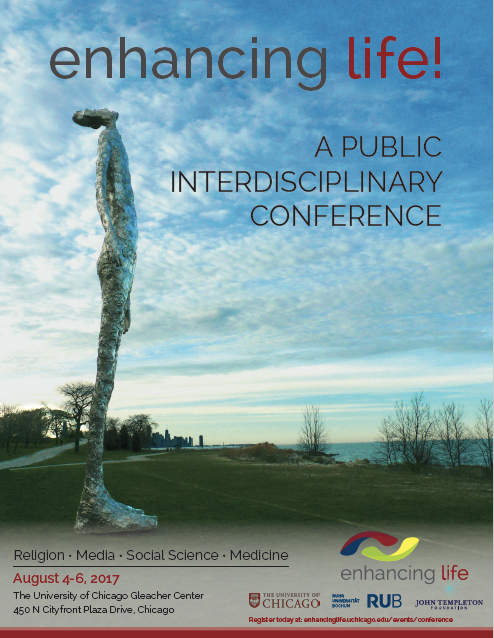From the particle accelerator at CERN to trending topics on Twitter, scientists and other researchers can now collect huge amounts of data at an unprecedented rate. However, as these collections grow, the costs and realities of managing this data throughout its lifecycle has become a great challenge.
Funded by the National Science Foundation and in partnership with the Coalition for Academic Scientific Computation, the University of Chicago Research Computing Center hosted the Research Data Management Implementation (RDMI) Workshop, held in Arlington, Virginia, in March. More than 100 researchers, librarians, and industry and university computing professionals from around the country convened to discuss data management challenges, share experiences, and explore solutions. With the increased need to support data management, and new data requirements from federal agencies, the workshop encouraged universities and research institutions to avoid “reinventing the wheel,” instead learning from one another by leveraging a number of existing resources.
Researchers collecting data often have trouble keeping up with the best and most current methods for data storage and management. Collaboration across disciplines was discussed as an important first step. Data management strategies of research universities, as well as non-academic organizations, such as Amazon and Google, were also examined.
Examining “Software as Service” Model
The concept of research data management as a service emerged as a key theme. Globus Online, a file-transfer service which allows users to move, sync, and share data with ease, was presented by Ian Foster, Director of the Computational Institute at the University of Chicago and Argonne National Laboratory. Globus Online, he explained, is as an example of a “software-as-service” model used by popular web-based companies like Flickr and Netflix that “makes it easier to share data than not to share data,” Foster said. “Globus Online makes data storage so easy, that [researchers] do it by default.”
Workshop participants discussed examples of data management implementations and provided a summary of position and experience papers. The workshop also featured three panel discussions with university leaders, industry professionals, and funding agency representatives, respectively.
At the close of the program, H. Birali Runesha, Director of Research Computing at the University of Chicago and chair of the RDMI Workshop Committee, expressed his appreciation for the rich discussion, strong ties, and commitment to ongoing dialogue that was established by participants.
Runesha also emphasized the urgent need to establish reasonable data management practices in light of new federal requirements for public data access. “There’s a lot out there already in terms of customized solutions,” he said. “Having a vision is good, but having an implementation plan is better—that’s really what we aim to achieve here.”
For more information, please visit: http://rdmi.uchicago.edu/.
By Jessica Stoller-Conrad




